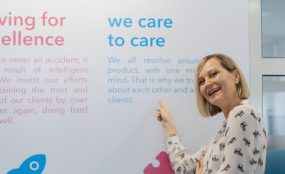Being a Product Manager is fun; that’s a well-known fact. But fun aside, what is the actual output of Product Managers in Product teams all around the industry? In my humble opinion, it’s DECISIONS.
Product Managers are flexible decision-making machines. They need to be confident in their decision-making process. Also, their job requires them to put their ego aside and be flexible enough to change their mind or way of thinking when the situation demands it.
Why? Because our work is not based only on numbers but also on intuition, educated guesses, past experiences, and pattern recognition.
Since everything apart from numbers is not exact, we encounter a lot of biases.
Here are some common cognitive biases I’ve encountered during my career as a Product Manager, as the lead actor, or simply as an observer within a Product team.
The Law of Small Numbers in Product Teams
I mastered the art of hasty generalization when working in a company that builds a single B2B Vertical SaaS product. Sometimes I could build a case on a single example I found. It is ludicrous how strong a case you can build on one scenario only, on a minimal amount of data.
In specialized tourism software such as Lemax, you simply can’t have a large data set to decide what should or shouldn’t be implemented. The result of this are features that were perfect at the moment of building it for a single client. Later, nobody found any value in them. It satisfied one client and tainted the codebase.
Product Manager Confirmation Bias
Following the law of small numbers, the next-in-line bias that usually tinkered with my thinking was the confirmation bias.
As a Product Manager, you have a job to do and need proof; otherwise, your ideas might get rejected due to a lack of “evidence” or simply because your case is not that strong. More than not, I would fall down the rabbit hole of looking for evidence supporting my idea. While doing that, I was good at countering evidence supporting the opposite.
Product Manager Overconfidence and Over-Optimism Bias
You have to be a positive thinker; otherwise, you may be labeled negative, right? What about being realistic? Well, that came later on in my career.
I used to be overconfident, optimistic, and unrealistic as well. I had a 10-liter bucket and was confident I could squeeze 15 liters of water in it. The best-case scenario was always the leitmotif of my planning capabilities. That reflected my daily schedule, the backlog, sprint, scope, and development teams around me.
The Old Way of Doing Things in Product Teams
Shreyas Doshi, one of the most prominent Product Managers and PM Leaders, labeled it the IKEA Effect for Product bias. This bias was the predominant one.
We have an extensive code base, a rather complex enterprise-level system, tons of modules and features, and very high configurability. The new things we were building relied heavily on what was developed in the past. Everything was and is intertwined, dependent, and connected. Reluctancy beamed over radical approaches, feature obsoletion, and significant refactorings.
Indeed, we were often over-attached to the work we had already put in to simply decide to let it go and simplify our users’ lives. The sunk cost fallacy at its best, plus scar tissue accumulated from the overconfidence bias.
Product Manager Execution Capability Bias
I built a lot of mediocre features and accepted low-quality deliveries because I justified it due to the constraints I knew were present in the company at that moment: not enough engineers, no proper designer, QAs nowhere to be found, etc.
The definitions of ‘ready’ and ‘done’ change rapidly in such situations. The execution capability bias prevents you from changing your work hygiene because you feel too constrained and in the gutter to start another argument with somebody.
Lest we forget, here are a few honorable mentions:
- Authority Approval Bias
New ideas or ways of thinking get sidetracked because the more senior you are, the better you know. It’s as simple as that. I have a dozen examples where seniors have failed. And that’s ok.
What is not ok is that many less senior coworkers hesitate to question seniors. Not because the work environment prohibits it in any way but because they think it’s rude. In addition to that, the domain is complex, so what do I know about customers’ needs?
- Causality Bias
Tending to assign cause to random chance. Misinterpreting circumstantial evidence as a root cause. Connecting and relating two events when they are in no relationship at all.
You hired a new manager for your Product Team. In the following months, the team started performing much better. Is it because of the new manager, or is it because you just got into the COVID-19 period, and there was suddenly much less work to be done?
Be cautious of this cognitive bias since it promotes decisions that are of illusory nature.
- Preventable Problem Paradox
Not really a bias but rather a paradox, as its name says. Problem-solvers tend to be incentivized because they fixed an incident, handled a challenging client situation, found a last-minute workaround in the system to help the customer work, etc. But the ones that prevent problems by raising a flag or acting in advance are somewhat left behind. Their actions seem tedious and unnecessary.
How often have you heard the saying, “We’ll cross that bridge when we get there?”. Problem-solvers do exciting stuff, which often seems complicated and critical.
How to Reduce the Bias Effect in Product Management?
Since decisions are the very output we produce as Product Managers, we need to be careful to avoid making systematic errors in reasoning, information processing, and observations. As our careers advance, our brains are constantly being remolded and (re)trained to think in a certain way.
Cognitive biases are not uncommon – they are our silent, mostly unconscious way of thinking. Identifying them is the very first step you can take to reduce their effect. It is only human nature to tend to process everything through a filter of personal experience and preferences.
Be aware of your cognitive biases because you most certainly have some of them. They are a part of your daily routine or the team’s and company’s mindset. Identifying them is the first step in the right direction. Once identified, address them frequently, challenge yourself and your coworkers, and jump out of your comfort zone.
Learn more on how our Product and Engineering teams are organized in Lemax in our recent blog.



